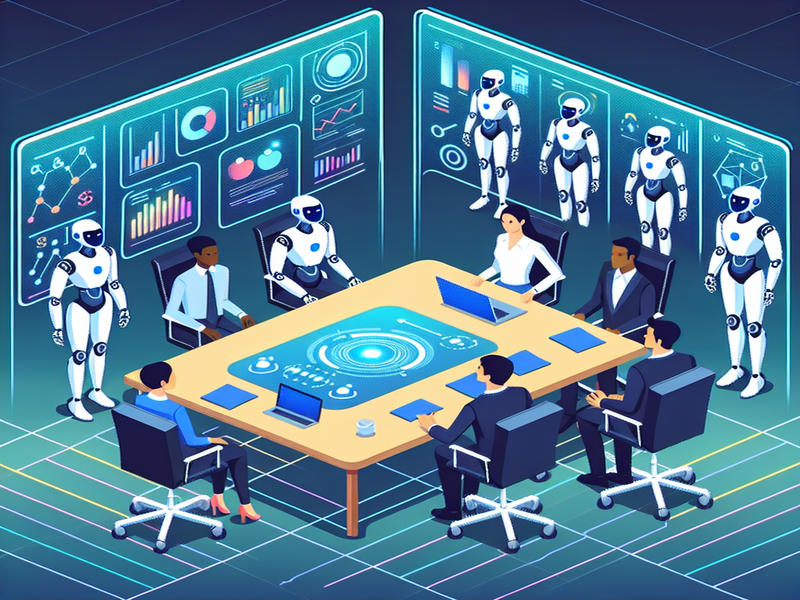- Updated: September 20, 2024
- 5 min read
Thinking of Building Your Own AI Agents? Don’t Do It, Advisors Say
Unleashing the Power of AI Agents: Insights from Industry Experts
As businesses grapple with the complexities of digital transformation, the emergence of AI agents has sparked a new wave of innovation and automation. These intelligent systems, designed to operate autonomously, have the potential to revolutionize workflows, augment human capabilities, and unlock unprecedented value from generative AI technologies. However, as with any groundbreaking advancement, the journey to harnessing the full potential of AI agents is fraught with challenges and considerations.
Key Insights from Industry Thought Leaders
Forrester, a leading research and advisory firm, has issued a stark warning to organizations contemplating the development of in-house AI agents: “Three-quarters of the organizations that try to build AI agents in house will fail.” The firm’s analysts, Jayesh Chaurasia and Sudha Maheshwari, attribute this high failure rate to the intricate nature of agentic AI architectures, which demand advanced data architectures, specialized expertise, and the seamless integration of multiple models.
Echoing this sentiment, Adnan Masood, Chief AI Architect at UST, a digital transformation provider, emphasizes the complexity of building robust AI agents from scratch. He cites the challenges of implementing robust memory management, intelligently managing context, and dynamically adapting responses based on evolving knowledge bases as formidable obstacles that necessitate specialized expertise in machine learning, natural language processing, and data engineering.
“Reinventing the wheel is indeed a bad idea when it comes to complex systems like agentic AI architectures,” Masood asserts. “These architectures are inherently intricate, involving a multitude of components.”
Overcoming Challenges: Lessons from Trailblazers
While the path to successful AI agent development is arduous, some companies have embraced the challenge and emerged with valuable lessons. Goldcast, a software developer focused on video marketing, has experimented with a dozen open-source AI models to assist with various tasks, such as video transcription, blog post generation, and facial recognition. Their approach involves harnessing the power of these existing models and tailoring them to specific use cases and workflows, rather than building proprietary AI agents from scratch.
Lauren Creedon, Head of Product at Goldcast, emphasizes the importance of enabling more teams to work with AI. “The more people who are enabled on how to work with it, and the more teams that work with it, the better outcomes will get, not only for business operations, but for customers,” she says.
Slate Technologies, a data analytics provider for the construction industry, has been rolling out its own AI agents for three years. Senthil Kumar, CTO and Head of AI at Slate Technologies, underscores the value of human supervision and collaboration in the development process. “It’s a collaborative process of evolving between the whole AI ecosystem and the human counterparts,” he explains.
Partnering for Success: Leveraging AI Expertise
For many organizations, the decision to build their own AI agents or partner with an AI consulting firm or vendor is a critical one. Chris Ackerson, Head of AI at AlphaSense, an AI-powered market intelligence firm, cautions against the pitfalls of “builder’s remorse,” citing the potential for spiraling costs, underestimating resources, and lacking in-house expertise.
“While some companies may achieve success, it’s common for these projects to spiral out of control in terms of cost and complexity,” Ackerson warns. “In many cases, buying a solution from a trusted partner can help organizations avoid the pitfalls of builder’s remorse and accelerate their path to success.”
Masood reinforces this perspective, advocating for organizations to leverage the expertise and experience of specialists who have navigated the complexities of agentic AI architectures. “By turning to specialists or adopting pre-built solutions, or tapping into the open-source ecosystem, they can leverage the expertise and experience of those who have already navigated these challenges, ultimately increasing their chances of success,” he advises.
Case Studies and Real-World Examples
The transformative potential of AI agents is already being realized across various industries. Small and medium-sized businesses (SMBs) are leveraging AI agents to streamline operations, enhance customer experiences, and gain a competitive edge. For instance, a retail SMB might deploy an AI agent to analyze customer data, identify purchasing patterns, and generate personalized product recommendations, driving increased sales and customer loyalty.
In the marketing domain, AI agents are revolutionizing content creation, campaign optimization, and audience targeting. A marketing agency could leverage an AI agent to generate high-quality, SEO-optimized content, analyze campaign performance, and adjust strategies in real-time, delivering more effective and efficient marketing initiatives.
The healthcare industry is also embracing AI agents to enhance patient care and streamline administrative processes. An AI agent could be trained to analyze medical records, identify potential health risks, and provide personalized treatment recommendations, enabling more proactive and data-driven healthcare delivery.
Conclusion and Recommendations
As the world of AI continues to evolve at a rapid pace, the development and deployment of AI agents will become increasingly crucial for businesses seeking to remain competitive and innovative. While the challenges of building these complex systems should not be underestimated, the rewards for those who navigate this landscape successfully are immense.
For organizations embarking on this journey, it is essential to carefully assess their internal capabilities, resources, and expertise. Those lacking the necessary foundations may find greater success by partnering with AI specialists, leveraging pre-built solutions, or tapping into the open-source ecosystem. Regardless of the approach, fostering a collaborative relationship between human experts and AI agents will be paramount, as the true power of these systems lies in their ability to augment and amplify human intelligence, rather than replace it entirely.
As the world continues to embrace the transformative potential of AI agents, those who navigate this landscape strategically and with a keen understanding of their organizational needs will be well-positioned to unlock new realms of innovation, efficiency, and growth.

